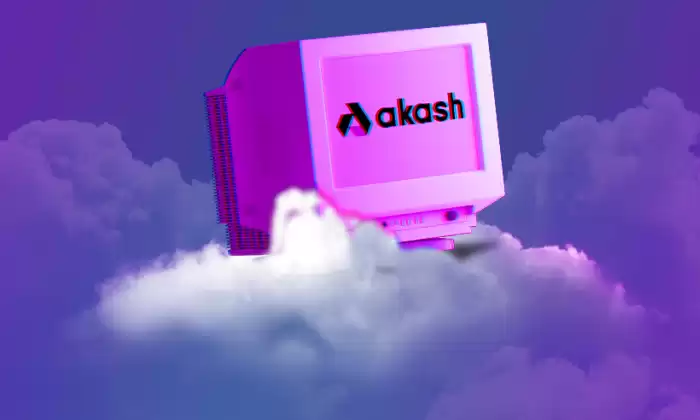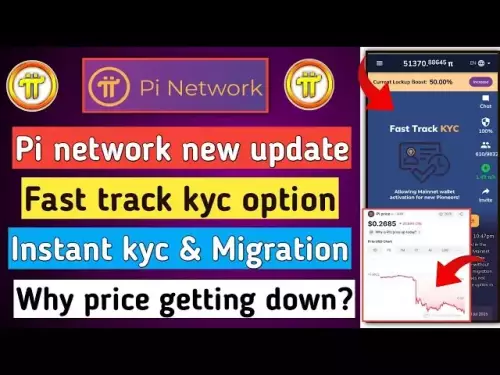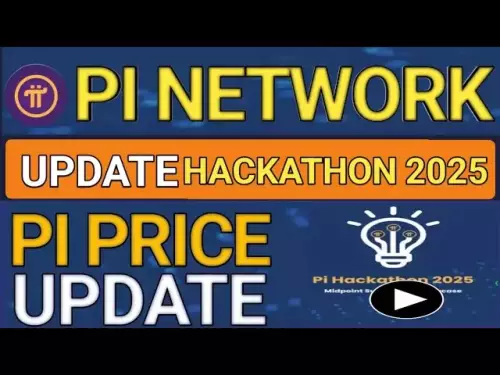-
 bitcoin
bitcoin $109667.069529 USD
-3.03% -
 ethereum
ethereum $3936.685804 USD
-4.07% -
 tether
tether $1.000493 USD
0.01% -
 xrp
xrp $2.771823 USD
-4.74% -
 bnb
bnb $957.805027 USD
-5.34% -
 solana
solana $196.735100 USD
-6.68% -
 usd-coin
usd-coin $0.999727 USD
-0.01% -
 dogecoin
dogecoin $0.227355 USD
-5.12% -
 tron
tron $0.335205 USD
-0.81% -
 cardano
cardano $0.779256 USD
-3.59% -
 ethena-usde
ethena-usde $0.999900 USD
-0.06% -
 hyperliquid
hyperliquid $42.492095 USD
-6.61% -
 chainlink
chainlink $20.501853 USD
-4.34% -
 avalanche
avalanche $28.952606 USD
-11.21% -
 stellar
stellar $0.356038 USD
-3.93%
How to buy and sell Akash coins?
To buy or sell Akash coins, choose a cryptocurrency exchange that supports AKT, create an account, deposit funds, and place a buy or sell order in the corresponding trading pair.
Nov 15, 2024 at 10:48 am

Akash Network is a decentralized cloud computing platform that provides on-demand access to computing resources. The network is powered by the Akash token (AKT), which is used to pay for cloud computing services.
If you're interested in buying or selling Akash coins, there are a few different ways to do so. Here's a step-by-step guide on how to buy and sell AKT coins:
How to Buy Akash Coins- Choose a cryptocurrency exchange. The first step is to choose a cryptocurrency exchange that supports Akash coins. There are several reputable exchanges to choose from, including Binance, KuCoin, and Gate.io.
- Create an account on the exchange. Once you've chosen an exchange, you'll need to create an account. This usually involves providing your name, email address, and a password.
- Deposit funds into your account. Once you've created an account, you'll need to deposit funds into it in order to buy Akash coins. You can do this by transferring cryptocurrency from another wallet or by using a credit or debit card.
- Buy Akash coins. Once you have funds in your account, you can start buying Akash coins. To do this, simply navigate to the AKT/USDT or AKT/BTC trading pair and place a buy order.
- Choose a cryptocurrency exchange. The first step is to choose a cryptocurrency exchange to sell Akash coins. There are several major exchanges that list AKT, including Binance, KuCoin, and CoinEx.
- Create an account on the exchange. If you don't already have an account on the exchange, you'll need to create one. This usually involves providing your name, email address, and a password.
- Deposit Akash coins into your account. If you have Akash coins stored in a hardware wallet or another exchange, you'll need to deposit them into your account on the exchange you're using to sell them.
- Sell Akash coins. Once you have Akash coins in your account, you can start selling them. To do this, simply navigate to the AKT/USDT or AKT/BTC trading pair and place a sell order.
- What are the fees for buying and selling AKT coins? The fees for buying and selling AKT coins vary depending on the exchange you use. Binance charges a trading fee of 0.1% for both takers and makers, while KuCoin charges a trading fee of 0.1% for takers and 0.05% for makers.
- What are the minimum and maximum amounts of AKT coins that I can buy or sell? The minimum and maximum amounts of AKT coins that you can buy or sell vary depending on the exchange you use. Binance has a minimum trading limit of 10 AKT tokens, while KuCoin has a minimum trading limit of 50 AKT tokens.
- How long does it take to buy or sell AKT coins? The time it takes to buy or sell AKT coins will vary depending on the exchange you use. On Binance, trades are typically executed within a few seconds, while on KuCoin, trades can sometimes take several minutes to execute.
Disclaimer:info@kdj.com
The information provided is not trading advice. kdj.com does not assume any responsibility for any investments made based on the information provided in this article. Cryptocurrencies are highly volatile and it is highly recommended that you invest with caution after thorough research!
If you believe that the content used on this website infringes your copyright, please contact us immediately (info@kdj.com) and we will delete it promptly.
- APEX Token & LCX Exchange: Listing Trends and Insights
- 2025-09-27 00:45:16
- DRV Token's Wild Ride: Dilution, Debate, and the LCX Exchange Listing
- 2025-09-27 00:45:16
- Ruvi AI's Solana Surge: Daily Sales Explode, Leaving Giants Behind
- 2025-09-27 00:50:01
- Aster Exchange's XPL Token Price Glitch: A Deep Dive into the $4 Flash
- 2025-09-27 00:50:01
- Dogecoin and the Meme Coin Frenzy: Is Q4 the Time to Buy?
- 2025-09-27 00:50:01
- XRP, Digitap, and Presales: A New Challenger Emerges
- 2025-09-27 00:50:12
Related knowledge

What is Ethereum’s Slashing mechanism and how to punish malicious behavior?
Feb 20,2025 at 03:08am
Key PointsOverview of slashingDifferent types of slashing in EthereumIncentives and consequences of slashingIdentifying and reporting slashed validato...

What is the verifier node of Ethereum and how to become a verifier?
Feb 19,2025 at 06:00pm
The Verifier Node of Ethereum: A Comprehensive GuideKey Points:What is a Verifier Node?How to Become a Verifier NodeResponsibilities and Rewards of a ...

What is Ethereum’s staking, and how to participate and earn money?
Feb 19,2025 at 04:37pm
Key Points:Understanding Ethereum's Staking MechanismSteps to Participate in StakingBenefits and Rewards of StakingSecurity and Risk ConsiderationsTec...

What is Ethereum’s DAO (Decentralized Autonomous Organization) and how does it work?
Feb 20,2025 at 03:12am
Key PointsDefinition and Structure of a DAOGovernance and Decision-Making in DAOsBenefits and Use Cases of DAOsChallenges and Limitations of DAOsWhat ...

What is Ethereum's multi-signature wallet and how to improve security?
Feb 20,2025 at 02:18pm
Key Points:Understanding the Concept of a Multi-Signature WalletBenefits and Drawbacks of Multisig WalletsRequirements for Setting Up a Multisig Walle...

What is Ethereum's oracle and how to provide data for smart contracts?
Feb 21,2025 at 01:30am
Key Points:Understanding the concept of oracles in EthereumExploring different types of oraclesDetailed guide on how to provide data for smart contrac...

What is Ethereum’s Slashing mechanism and how to punish malicious behavior?
Feb 20,2025 at 03:08am
Key PointsOverview of slashingDifferent types of slashing in EthereumIncentives and consequences of slashingIdentifying and reporting slashed validato...

What is the verifier node of Ethereum and how to become a verifier?
Feb 19,2025 at 06:00pm
The Verifier Node of Ethereum: A Comprehensive GuideKey Points:What is a Verifier Node?How to Become a Verifier NodeResponsibilities and Rewards of a ...

What is Ethereum’s staking, and how to participate and earn money?
Feb 19,2025 at 04:37pm
Key Points:Understanding Ethereum's Staking MechanismSteps to Participate in StakingBenefits and Rewards of StakingSecurity and Risk ConsiderationsTec...

What is Ethereum’s DAO (Decentralized Autonomous Organization) and how does it work?
Feb 20,2025 at 03:12am
Key PointsDefinition and Structure of a DAOGovernance and Decision-Making in DAOsBenefits and Use Cases of DAOsChallenges and Limitations of DAOsWhat ...

What is Ethereum's multi-signature wallet and how to improve security?
Feb 20,2025 at 02:18pm
Key Points:Understanding the Concept of a Multi-Signature WalletBenefits and Drawbacks of Multisig WalletsRequirements for Setting Up a Multisig Walle...

What is Ethereum's oracle and how to provide data for smart contracts?
Feb 21,2025 at 01:30am
Key Points:Understanding the concept of oracles in EthereumExploring different types of oraclesDetailed guide on how to provide data for smart contrac...
See all articles










































































